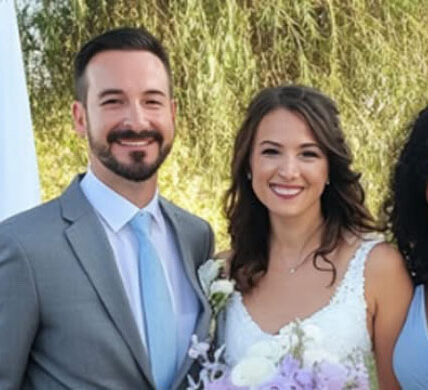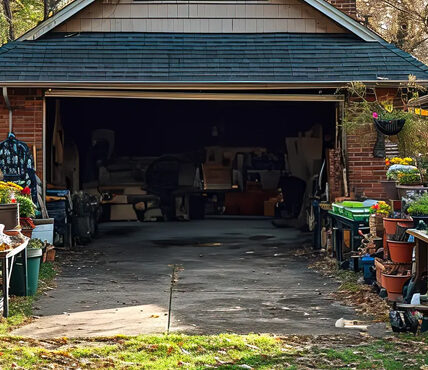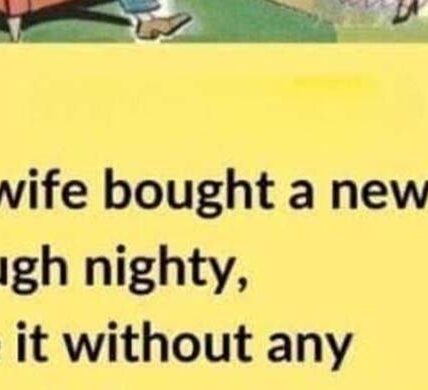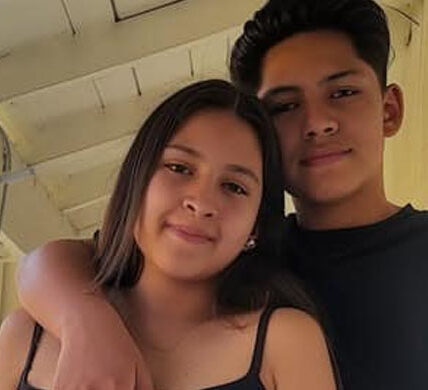Entitled Neighbors Threw a Loud Party and Used Our Pool as a Trash Bin – They Didn’t Get Away with It
When new neighbors moved into our serene suburban neighborhood, no one expected the chaos that would follow. From loud parties to blatant disrespect, their behavior pushed us to our limits—until one night, when a twist of karma restored peace and taught everyone a valuable lesson.
Hi, I’m Mark, a regular guy living in a quiet suburban neighborhood where everyone knows each other. My wife, Lisa, our two kids, Emma and Jake, and our dog, Max, enjoyed a peaceful life here—at least, we did until the Smiths moved in next door and turned our world upside down.
When the Smiths first arrived, they seemed nice. Mr. Smith was tall and always smiling. Mrs. Smith had a warm laugh. They invited us over for a BBQ.
“Hey there! I’m Tom Smith,” he said, shaking my hand firmly. “This is my wife, Karen. We’d love to have you over this Saturday for a BBQ. Meet the neighbors and all.”
My wife, Lisa, smiled back. “Sounds great. We’ll be there.”
Saturday came, and we went to the Smiths’ house. The BBQ was lively. People were laughing, the food was good, and everything seemed perfect.
“Do you like burgers?” Tom asked me, flipping patties on the grill.
“Sure do,” I replied. “Smells amazing.”
“Glad you could make it,” Karen added, handing Lisa a drink. “We want to get to know everyone.”
But there were signs of trouble. Tom made a few comments that felt off.
“We’re planning to put up a big fence,” he said, glancing at our yard. “We like our privacy.”
“That sounds… interesting,” I said, unsure what to make of it.
As the night went on, I noticed Tom and Karen were a bit too carefree. They didn’t seem to care much about the noise they were making, or if it bothered anyone else.
One Saturday night, we planned a quiet evening. Lisa prepared a lovely dinner, and we picked a family movie. It was supposed to be a relaxing night.
Just as we settled in, loud music erupted from next door. The Smiths were having a party.
“It’s probably a one-time thing,” I said, trying to stay calm.
But the music grew louder. Our kids, Emma and Jake, couldn’t sleep. Even our dog, Max, was restless.
“This is getting out of hand,” Lisa said, closing the windows. “The kids need to sleep.”
“I’ll go talk to them,” I sighed, getting up.
I walked over to the Smiths’ house, weaving through the throngs of people in their yard. I finally found Tom in the backyard, laughing with his friends.
“Hey, Tom!” I called out over the music.
He turned, still grinning. “Hey, Mark! Come join us!”
“Actually, Tom,” I began, trying to keep my tone friendly, “could you turn the music down a bit? The kids are trying to sleep.”
Tom’s grin faded slightly. “Oh, come on, man, it’s just a party. Lighten up.”
“I get that,” I said, trying to stay patient. “But it’s really loud. Just a little lower, please?”
Tom rolled his eyes but nodded. “Alright, alright. I’ll turn it down a notch.”
Satisfied, I headed back to our house. The music was still loud, but slightly more bearable. I settled back in with Lisa and the kids, hoping the night would finally quiet down.
But the noise persisted. Near midnight, with the music blaring even louder, I decided to check the backyard. That’s when I saw it.
“Lisa, come here,” I called out, shocked. “Look at this.”
Our pool was full of trash. Empty beer bottles, plastic cups, even food scraps floated in the water. The Smiths’ guests were using our pool as a trash bin.
“I can’t believe this,” Lisa said, furious. “We need to do something.”
I couldn’t let it go. The Smiths’ guests had trashed our pool, and our night was ruined. I stormed back over to their yard, anger boiling inside me. Tom Smith was still laughing with his friends, completely oblivious to the mess they had caused.
“Tom!” I yelled, trying to get his attention over the blaring music. “We need to talk, now!”
He turned, looking mildly annoyed. “What’s up, neighbor?” he asked, a smirk on his face.
“Your guests are using my pool as a trash can!” I shouted. “This isn’t okay. You need to take responsibility.”
Tom laughed, a dismissive sound that made my blood boil. “Relax, man,” he said, waving a hand. “It’s just a party. We’ll clean it up in the morning. Come on, have a drink.”
“No, Tom,” I said firmly, trying to control my anger. “You need to get your guests out of my yard right now.”
Tom rolled his eyes and called out to a few people. “Hey, guys, can you grab some of the trash from next door?” he said, not sounding serious at all. A few of his friends stumbled over, lazily picking up a couple of bottles and tossing them into a bag, laughing all the while.
It was clear they didn’t care. The minimal effort was insulting. I watched, fuming, as they continued to treat it like a joke.
“See? All good,” Tom said, grinning at me. “Now, how about that drink?”
“No,” I repeated. “This isn’t over. You need to keep your guests on your property.”
Tom shrugged, turning back to his friends. “Whatever, man. We’re just having fun.”
I walked back to our yard, seething. Lisa met me at the door, concern in her eyes. “How did it go?” she asked.
“Not well,” I replied. “They don’t care. They think it’s all a joke.”
“Unbelievable,” Lisa muttered. “What are we going to do?”
That’s when I remembered the motion-activated sprinklers we had recently installed to deter raccoons. I hadn’t planned on using them for this, but desperate times called for desperate measures.
“I have an idea,” I said, a small smile forming.
I went to the control panel and activated the sprinklers. Almost immediately, jets of icy water shot out, soaking the Smiths’ guests. The effect was instantaneous. Screams and shouts filled the air as partygoers scrambled to escape the unexpected downpour. Drinks were dropped, people slipped on the wet grass, and the entire scene turned into chaos.
Tom came running over, drenched and furious. “What the hell, man?!” he shouted, water dripping from his hair. “Why did you do that?”
I stepped outside, staying calm. “Sorry about that, Tom,” I said. “Our sprinklers must have been set off by all the motion in our yard. Maybe you should keep your guests on your property next time.”
Tom glared at me, but there was nothing he could say. His guests had been trespassing, and he knew it. He stormed back to his yard, shouting at his friends to go home.
The next morning, I woke up early. I wanted to see the aftermath. To my surprise, the Smiths and a few of their friends were already in our yard, cleaning up the mess.
“Good morning,” I called out, trying to keep my tone neutral.
Tom looked up, looking sheepish. “Hey,” he said. “We’re, uh, sorry about last night. We didn’t mean to cause so much trouble.”
Lisa joined me at the door. “We appreciate the apology,” she said. “Just please be more considerate in the future.”
“Yeah, we will,” Tom said, nodding. “We’ll make sure it doesn’t happen again.”
We watched as they finished cleaning up, a sense of satisfaction settling in. It seemed like the message had finally gotten through. Our pool was clear again, and the Smiths had been put in their place.
As they left, Tom turned back one last time. “Thanks for being understanding,” he said.
“Just respect our space,” I replied. “That’s all we ask.”
With that, peace was restored, at least for now. The Smiths had learned their lesson, and our neighborhood returned to its quiet, friendly self. The children played outside again without any disturbances, and the evenings were filled with the gentle hum of crickets, not blaring music.
Over the following weeks, we noticed a real change in the Smiths’ behavior. They were quieter, more respectful, and even started participating in neighborhood activities. Karen Smith joined the local book club, and Tom offered to help organize the community yard sale. It was as if the chaos of that night had opened their eyes to the value of being good neighbors.
One afternoon, as Lisa and I sat on our porch, watching Emma and Jake play with Max, Lisa turned to me and smiled. “You know,” she said, “it feels good to have our neighborhood back.”
I nodded, feeling the same sense of contentment. “Sometimes it takes a bit of a storm to clear the air,” I replied.
Our little corner of the world felt right again, a reminder that standing up for ourselves was worth it. The harmony and respect we once cherished were restored, proving that even the most challenging situations can lead to positive change when handled with calm and determination.



